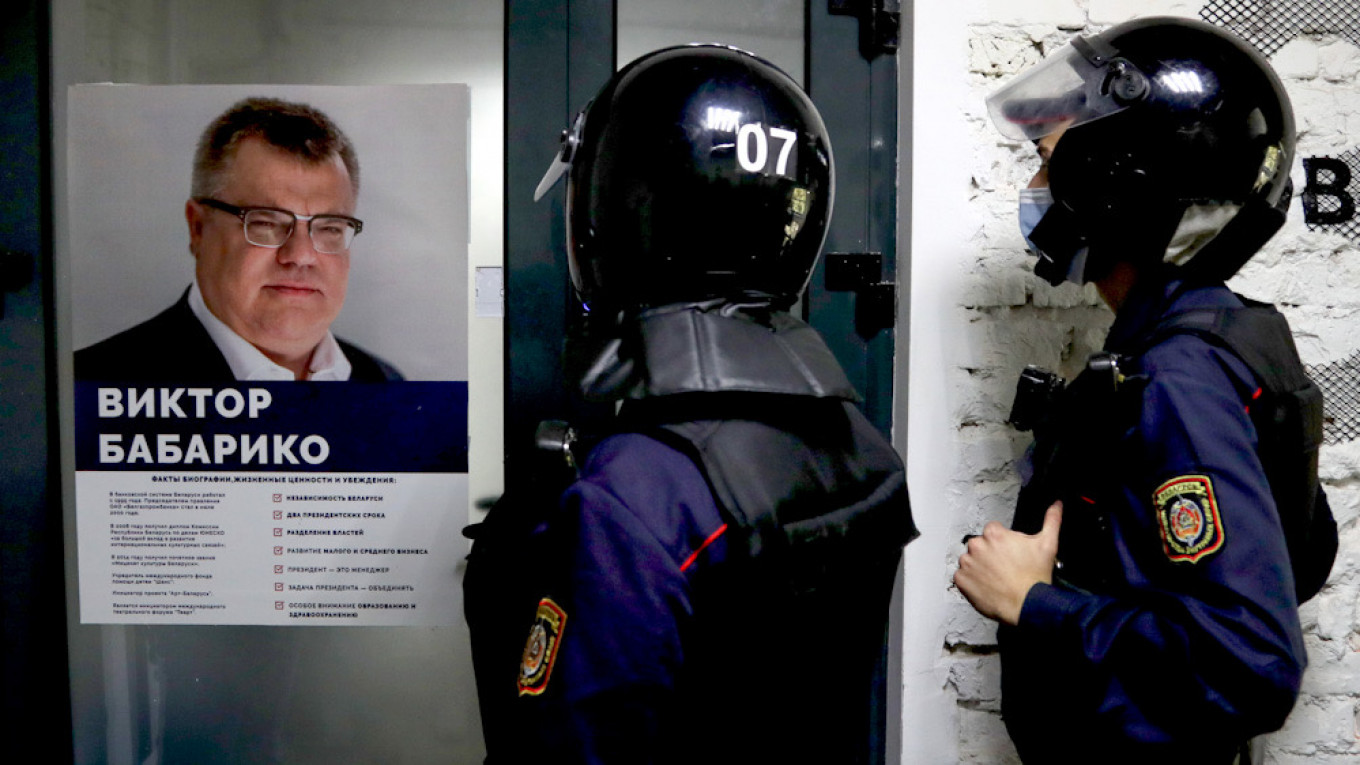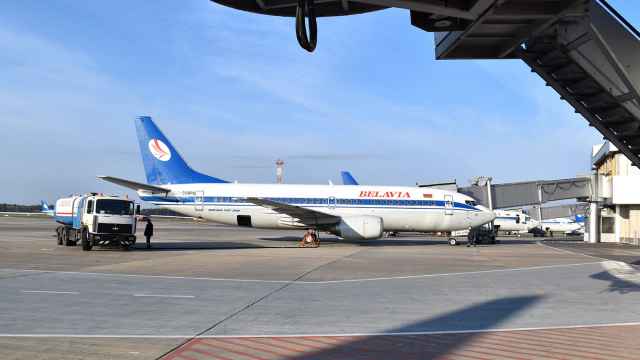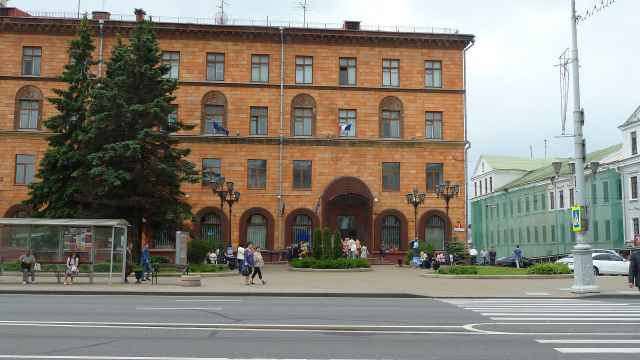Prosecutors in Belarus on Tuesday requested 15 years in jail for a leading opposition figure, who was arrested last year ahead of presidential elections that sparked historic anti-government protests.
The demonstrations swept the former Soviet country after strongman leader Alexander Lukashenko claimed a landslide victory in August polls that the opposition and many Western countries said were rigged.
Former banker and leading opposition member Viktor Babaryko was arrested in June ahead of the election after he announced he would run against Lukashenko, who has ruled Belarus with an iron fist since 1994.
On Tuesday, prosecutors requested that Babaryko be jailed for 15 years, an independent journalist said from court.
Babaryko was accused by the KGB security services of receiving bribes and "laundering funds obtained by criminal means" when he was head of Belgazprombank, the Belarusian branch of a bank belonging to Russian energy giant Gazprom.
Seven other defendants in the case, including several Belgazprombank executives, are being prosecuted on the charges.
All of them pleaded guilty and have given evidence against Babaryko. They are facing more lenient sentences of between three and six-and-a-half years.
Babaryko was among the several leading opposition figures who were arrested or fled the country ahead of the presidential vote.
Lukashenko's main opponent in the polls was Svetlana Tikhanovskaya, who took the place of her jailed husband on the ballot and quickly gained popularity.
She was forced into exile in EU member Lithuania several days after the protests engulfed the country. Thousands were detained in the crackdown that left several people dead.
The European Union has imposed several rounds of sanctions on Lukashenko and his allies — including travel bans and asset freezes — over the brutal treatment of protesters.
On Monday, the EU, U.S., Britain and Canada announced fresh sanctions on Belarus over the forced landing of a Ryanair flight last month to arrest a regime critic and his girlfriend onboard.
The new sanctions target major sources of state revenue including potash fertiliser and petroleum products.
Lukashenko, however, has so far shrugged off the Western pressure with backing from key ally Russia.
A Message from The Moscow Times:
Dear readers,
We are facing unprecedented challenges. Russia's Prosecutor General's Office has designated The Moscow Times as an "undesirable" organization, criminalizing our work and putting our staff at risk of prosecution. This follows our earlier unjust labeling as a "foreign agent."
These actions are direct attempts to silence independent journalism in Russia. The authorities claim our work "discredits the decisions of the Russian leadership." We see things differently: we strive to provide accurate, unbiased reporting on Russia.
We, the journalists of The Moscow Times, refuse to be silenced. But to continue our work, we need your help.
Your support, no matter how small, makes a world of difference. If you can, please support us monthly starting from just $2. It's quick to set up, and every contribution makes a significant impact.
By supporting The Moscow Times, you're defending open, independent journalism in the face of repression. Thank you for standing with us.
Remind me later.






